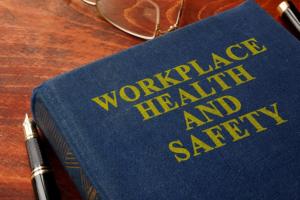As part of its Helping Great Britain Work Well strategy, the HSE has identified three health priorities for the year ahead.

The three priorities, which will inform the Health and Safety Executive's (HSE) work going forward, are: occupational lung disease, musculoskeletal disorders and work-related stress.
The move is part of its drive to encourage broader ownership of health and safety issues. “Tackling workplace ill health is rightly a key theme. Some 23 million working days are lost each year because of it. Individuals, employers and the state incur an annual cost of around £9 billion from ill health due to today’s working conditions. So, reducing workplace ill health is a must for Britain’s well-being and prosperity,” said Justin Tomlinson MP, Minister for Disabled People (covering HSE).
HSE inspectors have now been tasked with visiting 700 sites – 500 of which must be completed by the end of the year. While inspectors will continue to focus on safety during visits, it is likely that they will now require operators to show how they are safeguarding the health of employees, particularly with regard to the three priorities.
Musculoskeletal disorders
Musculoskeletal disorders – termed MSDs – were chosen because the are the most commonly reported cause of occupational ill health across England, Scotland and Wales. According to the HSE, they account for 41% of all work-related ill-health cases and 34% of all working days lost due to ill health. The Executive has set out five outcomes it would like to see, including ‘significant improvements in preventing and controlling exposure to MSDs, especially in industries such as recycling’.
Occupational lung disease
Occupational lung disease comprises a range of conditions from asthma and chronic obstructive pulmonary disease to lung cancer and pleural mesothelioma. As such, it contributes significantly to work-related ill health and leads to an estimated 12,000 deaths each year. The Executive has set out five outcomes here, again stating the desire to see preventative measures being set in place for companies operating in the recycling sector among others.
Work-related stress
Across England, Wales and Scotland, the second most commonly reported cause of occupational ill health is work-related stress (WRS). While the highest number of cases are found in public services, it is spreading to other sectors. Prolonged WRS can lead to mental health conditions such as depression and anxiety. Figures from the HSE show that it accounts for 37% of all work-related ill-health cases, and 45% of all working days lost due to ill health. The Executive has identified four priorities, including the desire to see employers taking ‘a proactive rather than a reactive stance to WRS’.
BMRA is looking to re-instate its Health and Safety Committee, and hopes to convene the first meeting before the end of the year. If you are interested in getting involved, please contact Antonia.
For more information, download the HSE flyers below.
Musculoskeletal disorders Work-related stress Occupational lung disease


